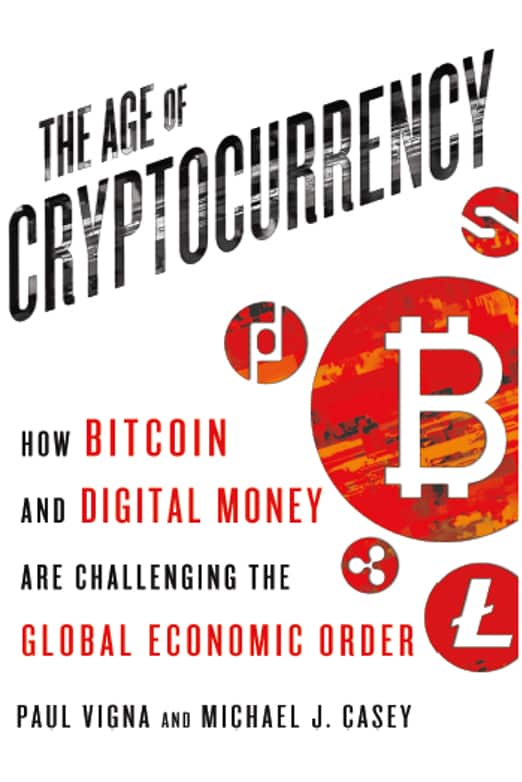Book Review

If you are baffled by Bitcoin and bemused by blockchains then The Age of Cryptocurrency, by Wall Street journalists Paul Vigna and Michael J. Casey includes everything you could possibly want to know about cryptocurrencies, without the need for being either a skilled mathematician or uber-geek computer engineer.
Covering the first attempts to create a digital currency, by cypherpunks, including David Chaum’s doomed DigiCash and the Electronic Monetary System (EMS) developed by Sholom Rosen at Citibank in the 90s, which was abruptly shut as a direct result of the creation of CitiGroup: A landmark event in US banking history, the authors say would presage financial disaster a decade later and set the date for bitcoin’s arrival. Oh the irony!
A fair chunk of the book is devoted to the groundbreaking work of Bitcoin’s creator, Satoshi Nakamoto, who developed the ideas of others before him and created the blockchain, built around the principle of a universal, inviolable ledger, fully public and constantly verified by high-powered computers.
Bitcoin took off when faith in the existing banking system was at an all time low and the book lists key events, such as the Cyprus bank account freeze, which resulted in a bitcoin bonanza—digital money now seen as a safe haven from potential government confiscation.
Citing tales of people in Argentina using bitcoin to hedge against inflation, empowering women in Afghanistan and assisting the unbanked in emerging markets, Vigna and Casey believe cryptocurrencies have the potential to upend cumbersome centralized payment systems to clear money.
The book covers the rise of strike-it-rich developers as cryptpcurrency entered a “Wild-West get-rich phase.” Hobbyist entrepreneurs, such as original founder of bankrupt bitcoin exchange MtGox Jed McCaleb, and developments such as the shutdown by the FBI of the bitcoin-enabled black market, Silk Road, may not have helped the image of cryptocurrencies, but Vigna and Casey say that a collaborative approach is bitcoin’s greatest strength, and challenges have so far been met by the crypto community.
They do concede that bitcoin is not watertight—citing the unlikely event that bitcoin miners could band together to take 51% of the processing power of the bitcoin network. If a consortium of miners were to briefly gain enough processing power to control the blockchain, it could allow them toindirectly take money from other users, or buy something and then rewrite history so that the purchase disappears. Trust in bitcoin relies on their being no single entity with that kind of power, but the moment there is a 51% miner/mining pool, then users must trust they won’t engage in nefarious activities, which undermines the decentralized advantage of bitcoin.
The authors agree that while there is enormous potential for the unbanked, digital currencies are mostly used by a wealthy elite of bitcoin barons.
Despite many unknowns and much-needed improvements before cryptocurrencies go mainstream, Vigna and Casey believe that because of the momentum behind them and the fact that they solve big problems, which cannot be addressed within the existing payments infrastructure, digital currencies are here to stay.



